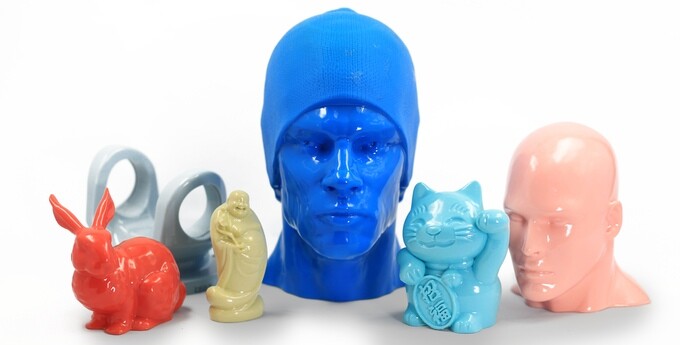While people are understandably pretty excited about what can be done with consumer 3D printers, one thing has to be admitted – the objects created by most of those printers tend to have a fairly rough, layered look to them. Polishing them by hand is one option, but Chinese startup Polymaker is now offering an alternative: a new printing material that essentially "self-polishes" when placed in an accompanying machine.
The material is known as PolySmooth, and it incorporates poly(vinyl butyral) or PVB as its base. It comes in spools just like other 3D printer plastics, and can be used normally in pretty much any third-party printer.
When items are first printed from PolySmooth, they'll still have the successive ridges common to other print materials, as a result of the object being built up layer by layer. That'll change, however, once they're placed in the Polysher.

Using a built-in nebulizer, it disperses a fine mist of isopropyl alcohol or ethanol within its sealed chamber. Droplets of the alcohol get into all the nooks and crannies of the printed item, where they react with the PVB, causing the very surface of it to melt. As a result, the ridges are melted away, while the object's basic appearance remains intact.
Polymaker is now raising production funds for PolySmooth and the Polysher on Kickstarter, where it has exceeded its funding goal. A pledge of US$229 will currently get you a Polysher with a spool of PolySmooth (your choice of color), which should be delivered in September if all goes according to plans.
Source: Kickstarter






